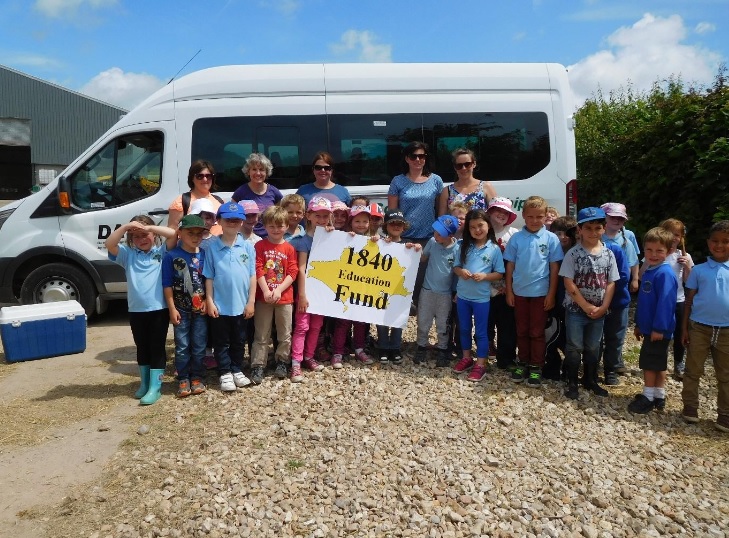
Children from Puddletown First School have been learning about agriculture, horticulture and rural life thanks to a new education fund that covers the whole of Dorset.
The year one pupils visited the dairy unit at Northbrook Farm, Puddletown, went pond dipping in the River Piddle and learnt about arable crops and livestock at Warren Hill Farm, Puddletown.
Year one teacher Ally Roff said the Fund provided an amazing opportunity for the children to experience life on the farm.
"The children learn so much from days like this – science, animals, living organisms, habitats, the local environment and geography – as well as having fun.
"There is a real need for youngsters to be educated about agriculture even in a rural county such as Dorset.
"I was teaching in Poole two years ago and the class of 30 really believed that milk came from Asda and had no idea of the important role farming plays in the county."
A farming background
Back in the 1840’s the majority of children being raised in Dorset would come from farming backgrounds but school governor Caroline Cox said the picture was very different.
"It is very important that we tell children where food comes from – very few of our children now have links with farming these days."
Wakely Cox, Chairman of the Dorchester Agricultural Society, said the vision of the Fund was to allow children to understand about rural life and farming through a hands-on approach.
"You cannot beat the experience of getting children out on a farm and see them feeding baby calves and lambs and handling wheat and barley.
"We hope the Fund will help sow the seeds to the next generation about the importance of farming," he added.
Dorchester Agricultural Society
The Fund has been set up to commemorate the formation of the Dorchester Agricultural Society in 1840.
It follows discussions with schools which showed that there are many places for schoolchildren to go in the county but not enough funds to pay for the transport to get children out of the classroom and on to farms, nurseries, food producers and processors.
Initially, the fund will finance transport to and from a number of farms which will be dedicated to providing farm tours.
It is the Society’s aim to top up the fund on a regular basis as well as raising funds via other activities.
